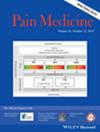为疼痛科研究员提供基于病例的同伴教学:针对不同住院医师背景的课程
IF 2.9
3区 医学
Q1 ANESTHESIOLOGY
引用次数: 0
摘要
引言 疼痛医学是一个高级医学亚专科,学员来自不同的基础学科。如果课程设置不能评估或促进受训者从其主要专业中发展出的不同专业知识,则可能会孤立而非促进多学科亚专科的协作学习。方法:我们为疼痛医学研究员创建了一个由 Kern 指导的课程,利用基于病例的模块和新颖的笔记和知识共享形式。根据疼痛医学能力内容,我们开发了九个由教师指导、基于病例的模块,其复杂程度不断增加。疼痛医学研究员被要求将已有知识和新知识分为四类:准确且相关的先前知识、不准确的先前知识、从同行处获得的新知识以及所有学员的新知识。每个案例研究结束后,每位研究员都会肯定 "从同行那里获得的新知识",并在下一次课程开始时准备一个简短的 "为所有学员提供的新知识 "回授。通过匿名调查对学员对课程的反应进行评估。结果 该课程于 2021 年至 2023 年在一家机构的疼痛医学研究班实施。在课程结束时,90% 的参与者表示,与传统的说教形式相比,参加这种基于病例的课程提高了知识保留率,80% 的参与者表示对同行的尊重增加了。讨论 我们创建了一个新颖的笔记和知识共享平台,以行之有效的基于病例的教育策略为基础,改善多学科受训人员的学习环境和知识保留情况。本文章由计算机程序翻译,如有差异,请以英文原文为准。
Case-Based Peer Teaching for Pain Medicine Fellows: A Curriculum for Diverse Residency Backgrounds
INTRODUCTION Pain medicine is an advanced medical subspecialty incorporating trainees from diverse primary disciplines. A curriculum that does not assess or promote the trainees’ differential expertise developed from their primary specialties may silo instead of promoting collaborative learning in a multidisciplinary subspecialty. METHODS We created a Kern-guided curriculum for the pain medicine fellowship utilizing case-based modules and a novel note-taking and knowledge-sharing format. Nine faculty-led, case-based modules of increasing complexity were developed based on pain medicine competency content. Pain medicine fellows were instructed to actively designate prior and new knowledge into four categories: Prior knowledge that is accurate and relevant, inaccurate prior knowledge, new knowledge gained from peers, and new knowledge for all trainees. After each case study, each fellow acknowledged “new knowledge gained from peers” and prepared a brief teach-back of “new knowledge for all trainees” at the beginning of the next session. Fellow participants were assessed for their reactions to the curriculum via anonymized surveys. RESULTS The curriculum was implemented at a single institution pain medicine fellowship from 2021 to 2023. At the end of this curriculum, 90% of participants reported improved knowledge retention through participating in this case-based curriculum compared to the traditional didactic format, and 80% participants reported increased respect for their peers. DISCUSSION We created a novel note-taking and knowledge-sharing platform, anchored by a well-established case-based educational strategy, to improve the learning environment and knowledge retention for multidisciplinary trainees with heterogeneous baseline knowledge.
求助全文
通过发布文献求助,成功后即可免费获取论文全文。
去求助
来源期刊

Pain Medicine
医学-医学:内科
CiteScore
6.50
自引率
3.20%
发文量
187
审稿时长
3 months
期刊介绍:
Pain Medicine is a multi-disciplinary journal dedicated to pain clinicians, educators and researchers with an interest in pain from various medical specialties such as pain medicine, anaesthesiology, family practice, internal medicine, neurology, neurological surgery, orthopaedic spine surgery, psychiatry, and rehabilitation medicine as well as related health disciplines such as psychology, neuroscience, nursing, nurse practitioner, physical therapy, and integrative health.
 求助内容:
求助内容: 应助结果提醒方式:
应助结果提醒方式:


